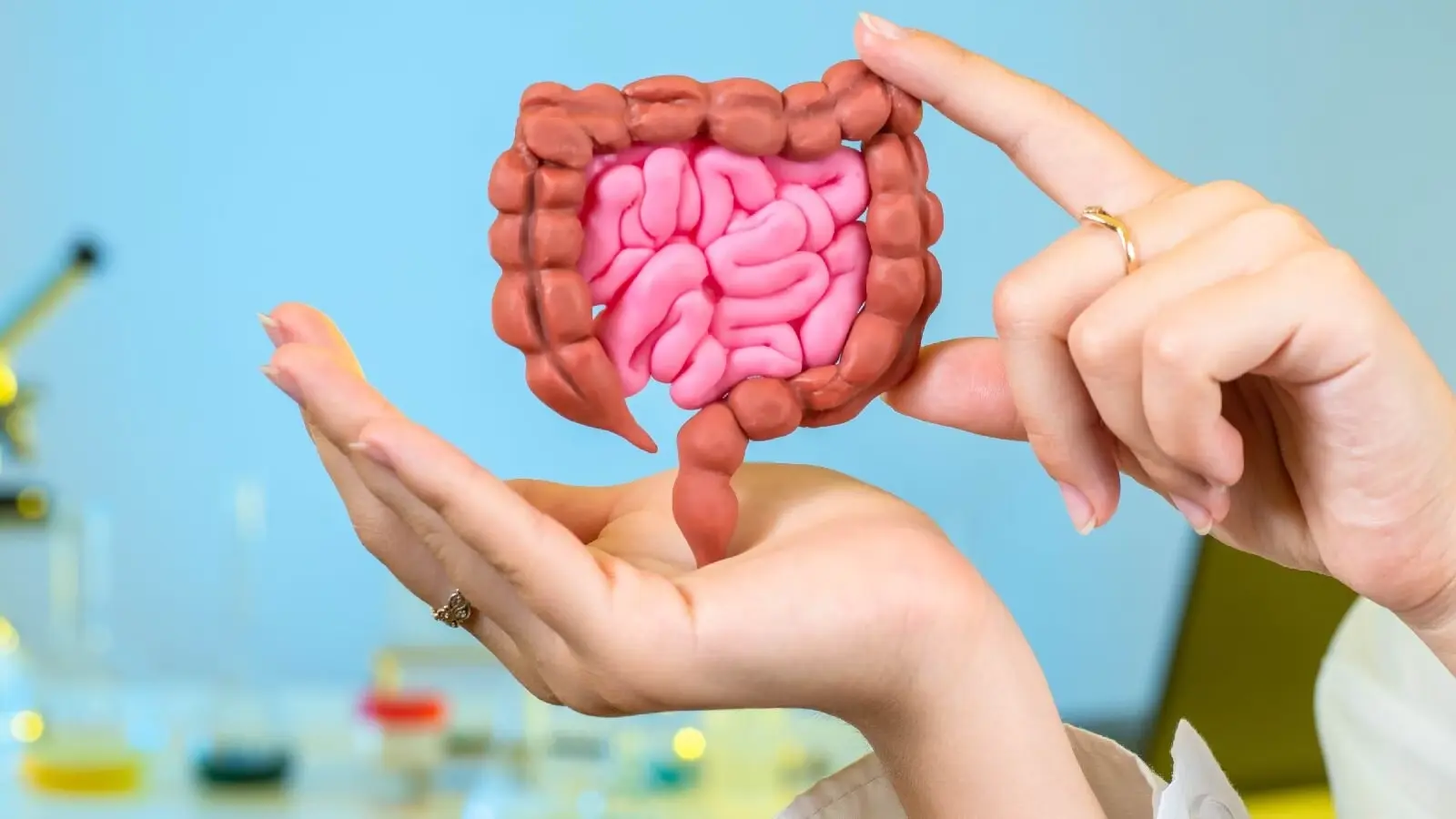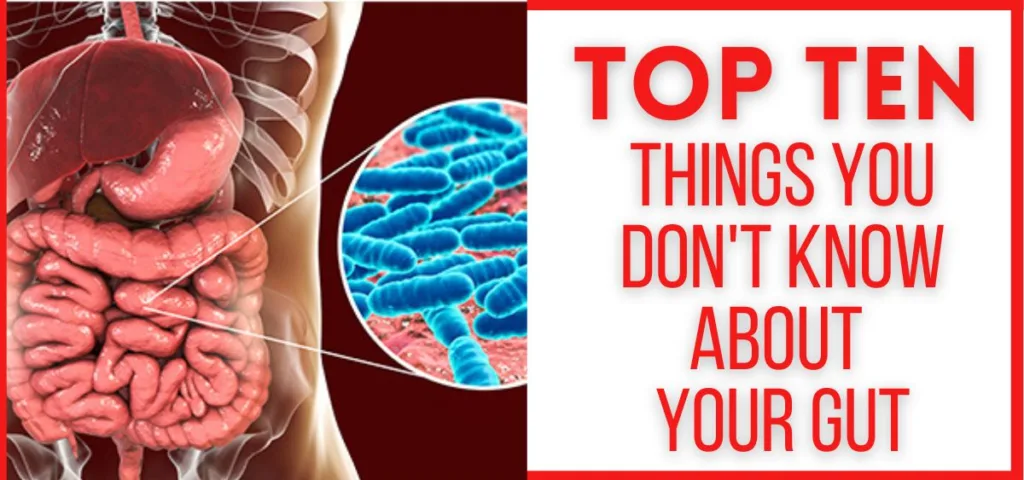The gut is another term for the gastrointestinal tract. The portions of the alimentary canal, particularly the stomach and the intestines (sometimes including the anus, especially in animals that eliminate wastes through the anus, in contrast to other animals that excrete waste through the mouth or by other means),
The gastrointestinal tract (GI tract, digestive tract, alimentary canal) is the tract or passageway of the digestive system that leads from the mouth to the anus. The GI tract contains all the major organs of the digestive system in humans and other animals, including the esophagus, stomach, and intestines. Food taken in through the mouth is digested to extract nutrients and absorb energy, and the waste is expelled at the anus as feces. Gastrointestinal is an adjective meaning of or pertaining to the stomach and intestines.
Your Gut’s Secret: Ten Things You Don’t Know About Your Gut
Your gut is not just about digestion; it’s a complex system with fascinating mysteries. In this article, we’ll delve into ten things you may not know about your gut. From its impact on your mood to its role in your immune system, the gut holds many secrets that can influence your overall well-being.

1. It Acts Like a Second Brain
There’s a reason your stomach feels like it’s tingling when you’re nervous or anxious. The enteric nervous system—a complex and sophisticated network containing over 100 million nerve endings—lines your gastrointestinal tract. It connects your gut and brain. “Many studies have linked changes in your microbiome to mood disorders like depression and anxiety,” says Pankaj Jay Pasricha, director of research at Johns Hopkins’s Division of Gastroenterology & Hepatology in Baltimore, Maryland.
Some research has even found that eating probiotic-rich foods (or supplementation) could work similarly to antidepressants in easing the symptoms of depression and anxiety.
2. Your Gut Can Help Keep Your Skin Clear
A healthy microbiome can help regulate the bacteria in other parts of your body, like your skin. According to Joshua Zeichner, M.D., a dermatologist with Mount Sinai Hospital in New York City, an unbalanced gut microbiome can cause inflammation that affects the entire body, including your skin, which can lead to breakouts.
One study found that 54 percent of patients with acne had impaired microbiomes compared to those of the average person. You can also find skincare products that contain probiotic extracts and prebiotics that can help with skin conditions like eczema or acne.
Probiotics are live, active cultures (the good bacteria itself) that are thought to have health benefits and can help improve your body’s good bacteria. Prebiotics are nondigestible substances (such as nonsoluble fiber) that promote healthy bacteria growth. They also serve as food for probiotics, so consuming the two together can make them extra effective.
3. It Can Help Strengthen Your Immune System
A big portion of your immune system is actually based on your gut. “Your immune system depends on the microbiome to function properly,” says Janelle Ayres, Ph.D., professor at the Salk Institute for Biological Studies in La Jolla, California.
“Some microbes in the gut help control how immune cells function; if the microbiome isn’t healthy, the immune system may become too active,” says Sarkis K. Mazmanian, Ph.D., Luis B. and Nelly Soux professor of microbiology at the California Institute of Technology in Pasadena. That’s one reason you should include fiber in your prebiotics; some of the by-products of fiber being broken down signal the immune system to stay calm.
4. Your Gut Can Help You Maintain a Healthy Weight
We all know that what you eat can have an impact on your weight, but there’s more to it than that. “A number of studies have shown there is a difference in the microbiome of people who are higher-weight compared to those who are lean,” Mazmanian says.
One reason is that the bacteria in your gut help break down fat, extract calories from food, and impact the production of appetite-regulating hormones like leptin and ghrelin. If there isn’t a balance between good and bad bacteria, your digestive system might not perform those functions as well as it could.
5. Your Digestive System Might Play a Role in Arthritis
This is related to how your microbiome plays a role in regulating your immune system. According to Mazmanian, an overactive immune system can lead to autoimmune conditions like rheumatoid arthritis. So far, research has found that an overgrowth of certain types of bacteria can trigger an inflammatory response that targets the joints.
Microbes in your gut can even impact treatments and make certain arthritis drugs more or less effective. Research is still exploring the connection between probiotics and joint health, including whether the bacteria in yogurt can help reduce joint inflammation. Some early results have shown that probiotics might be even more effective than taking nonsteroidal anti-inflammatory medicines like ibuprofen.
6. Four hundred times more melatonin is produced in the gut than in the brain
Melatonin is the sleepy hormone. We all need a good night’s sleep — if your sleep pattern is off, it’s hard to function properly. Plus, you’ll feel more stressed and eat all the wrong foods.
A healthy gut will keep producing melatonin and will help regulate sleep patterns. Team this with healthy choices, such as regular bed and wake times, and you will start to feel better with more energy.
7. Your gut is involved in the production of short-chain fatty acids
Short-chain fatty acids (SCFAs) are a type of fatty acid that is produced by the good bacteria in your gut. SCFAs play an important role in gut health, inflammation, and metabolism.
SCFAs help to strengthen the gut barrier, prevent inflammation, and regulate blood sugar levels. They also promote the growth of good bacteria in the gut.
8. Your gut produces serotonin
Serotonin is a neurotransmitter that plays an important role in mood, sleep, and appetite. It is also known as the “happy hormone.” About 95% of the body’s serotonin is produced in the gut. This means that your gut health can have a significant impact on your mood and overall well-being.
If you have low serotonin levels, you may experience mood swings, depression, anxiety, and sleep problems. You may also have difficulty losing weight.
9. Your gut is home to trillions of bacteria
It is home to trillions of bacteria, both good and bad. These bacteria, known as the gut microbiome, play an important role in many aspects of your health, including digestion, immunity, and even mood.
The good bacteria in your gut help to break down food, absorb nutrients, and fight off infection. They also produce beneficial compounds, such as short-chain fatty acids, which have anti-inflammatory and immune-boosting properties.
The bad bacteria in your gut can cause a variety of health problems, such as diarrhea, constipation, and food poisoning. They can also contribute to more serious conditions, such as inflammatory bowel disease, irritable bowel syndrome, and obesity.
It is important to maintain a balance between good and bad bacteria in your gut. This can be done by eating a healthy diet, getting regular exercise, and managing stress.
10. Your gut has its own nervous system
Your gut has its own nervous system, known as the enteric nervous system (ENS). The ENS is responsible for controlling digestion, as well as communicating with your brain about your gut health.
The ENS has over 100 million neurons, which is more than the spinal cord. It also produces a variety of neurotransmitters, including serotonin, dopamine, and norepinephrine. These neurotransmitters play a role in gut function as well as mood, sleep, and pain perception.
FAQs About Your Gut
Q. How can I improve my GI health?
You can enhance your gut health by consuming a diet rich in fiber, probiotics, and prebiotics.
Q. Can gut problems affect mental health?
Yes, an unhealthy gut can lead to mental health issues like anxiety and depression.
Q. What foods are good for G.I health?
Foods like yogurt, kefir, sauerkraut, and fiber-rich fruits and vegetables are beneficial for gut health.
Q. How long does it take to improve gut health?
It varies from person to person, but improvements can be seen in a few weeks to a few months.
Q. Can gut health impact weight loss?
Yes, a healthy gut can aid in weight management and weight loss.
Q. What are the signs of an unhealthy G.I.?
Symptoms may include bloating, gas, diarrhea, and food intolerances.
Conclusion: The Final Words
Your gut, a complex organ often overlooked, plays a pivotal role in your overall health. From digestion to immunity, the gut’s influence extends far beyond its primary function. As you’ve learned, your gut microbiome, the vast community of microorganisms residing within your digestive tract, is crucial for maintaining a healthy balance. It affects your mood, weight, and even susceptibility to diseases.
To nurture your gut health, prioritize a diet rich in fiber, probiotics, and prebiotics. These nutrients feed the beneficial bacteria in your gut, promoting a thriving microbiome. Additionally, manage stress, as chronic stress can disrupt the gut-brain axis. Regular exercise and adequate sleep are also essential for optimal gut function.
By understanding the intricacies of your gut and taking proactive steps to care for it, you can improve your overall well-being. Remember, your gut is more than just a digestive organ; it’s a vital part of your body that deserves attention.


































